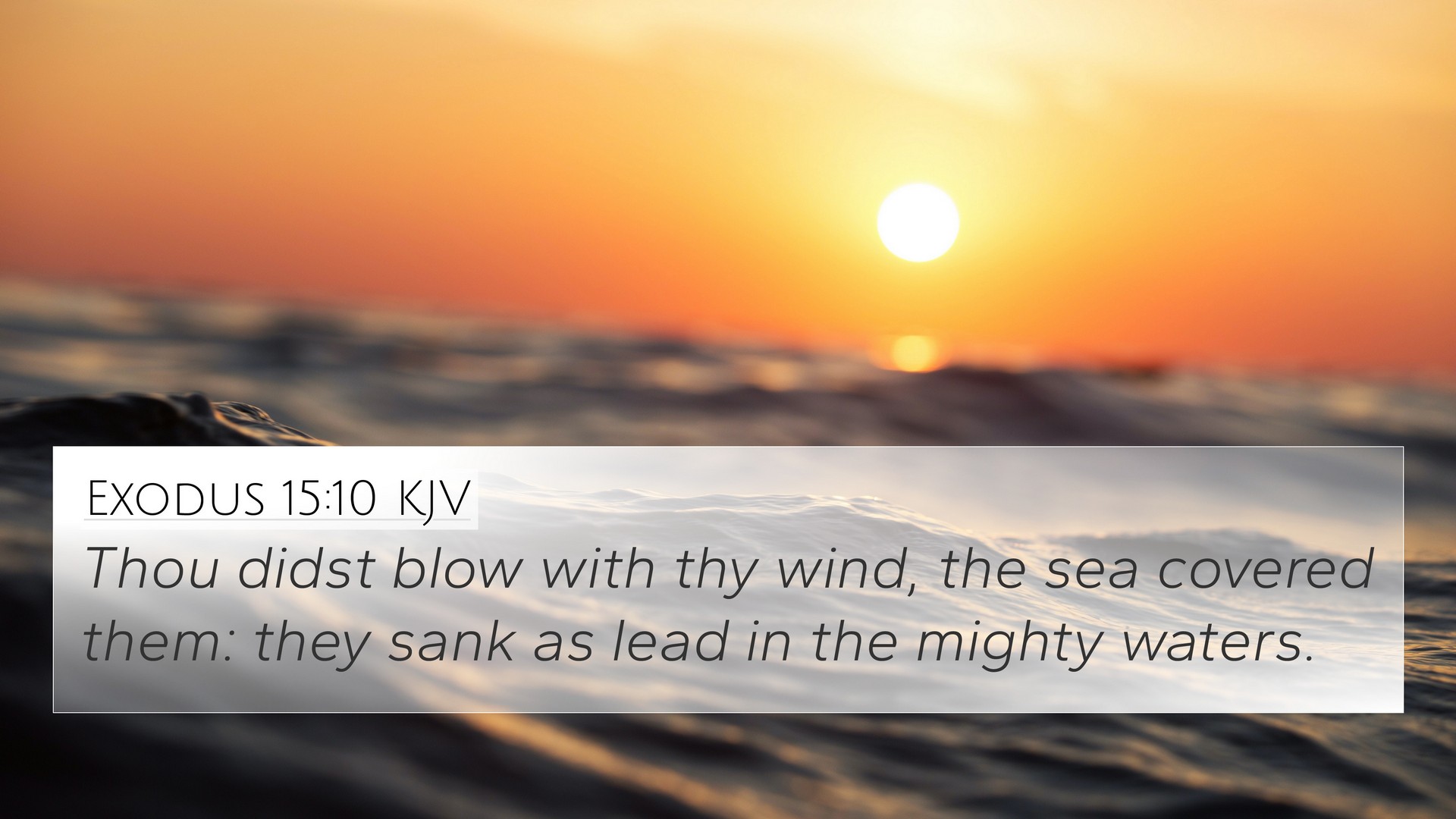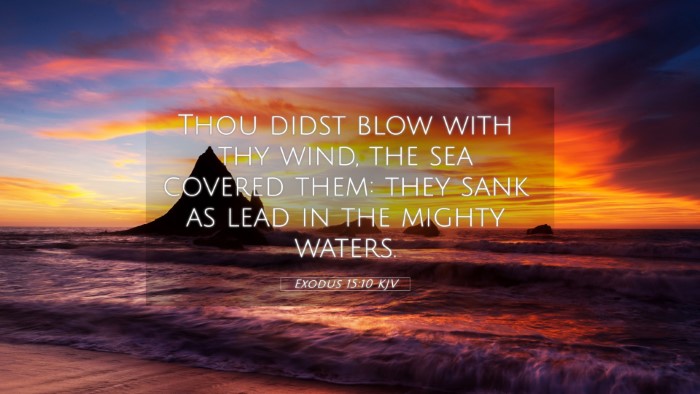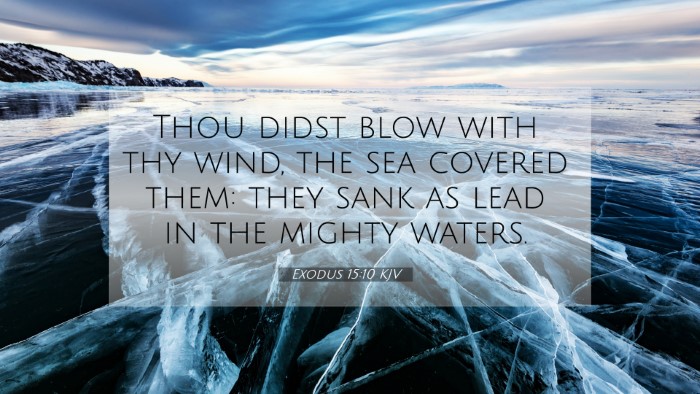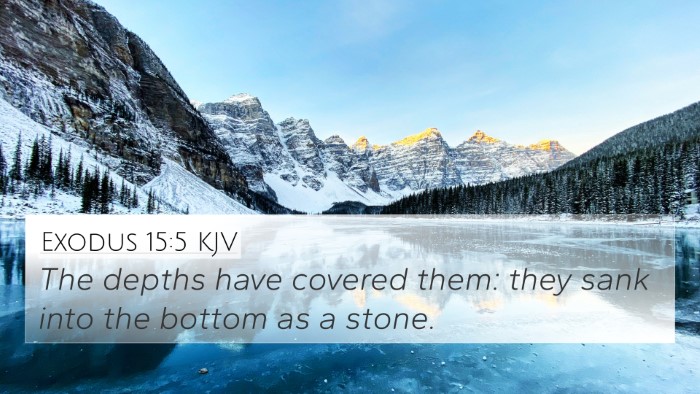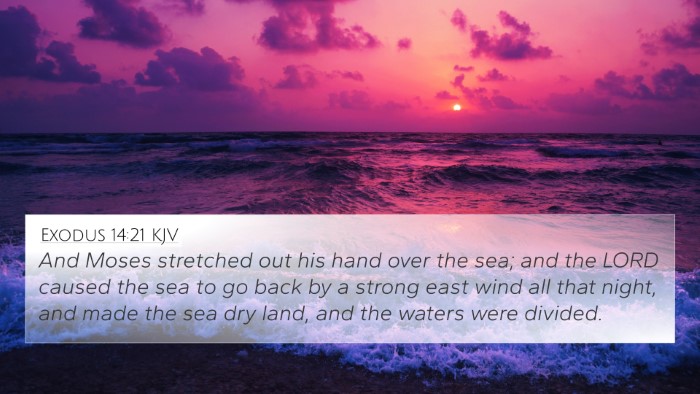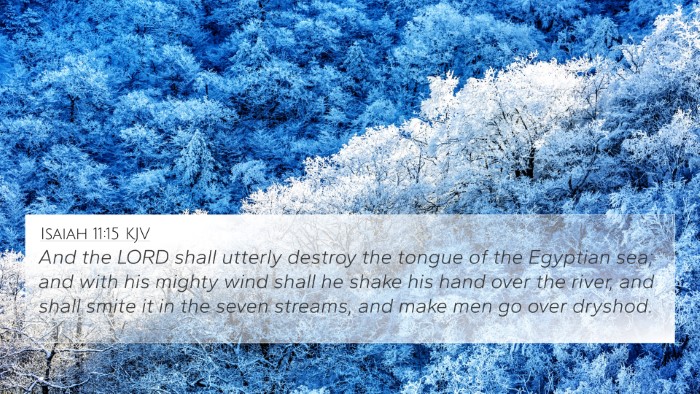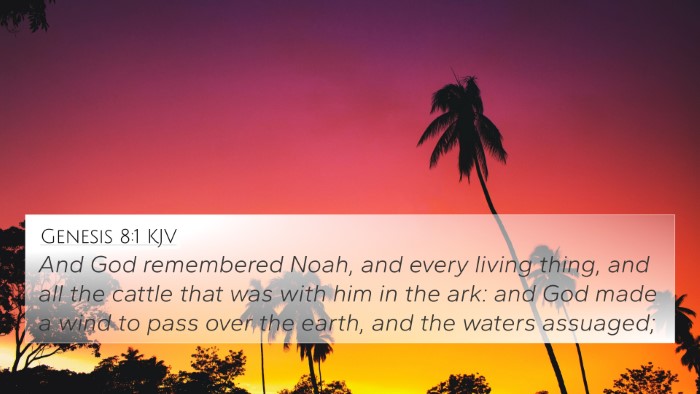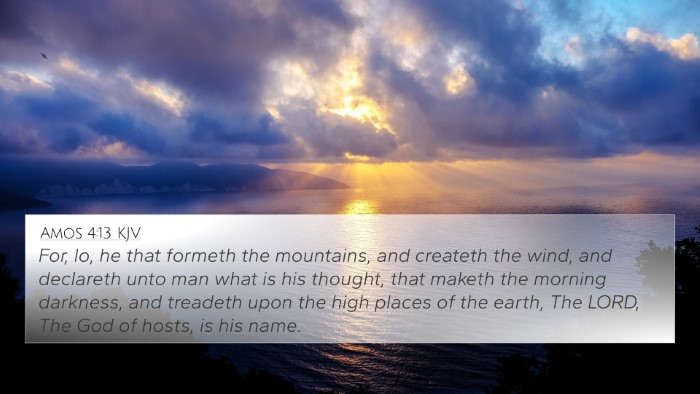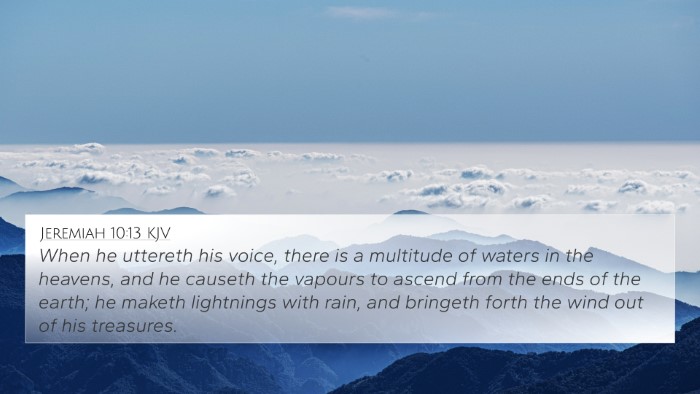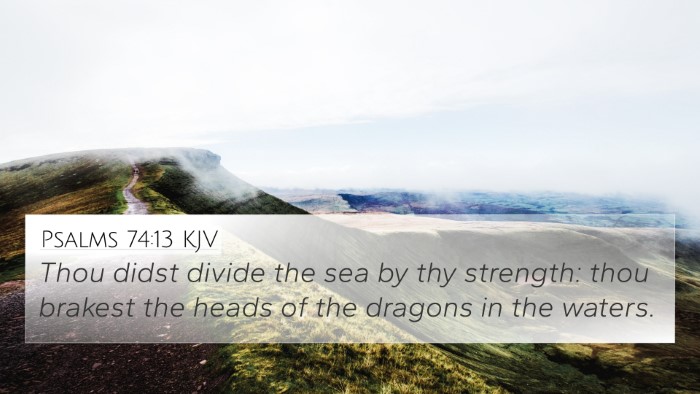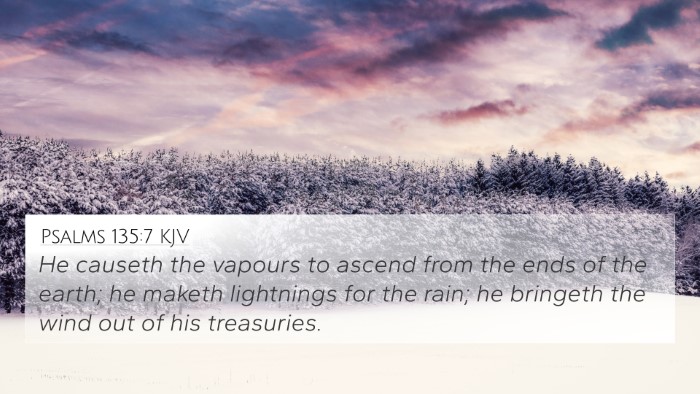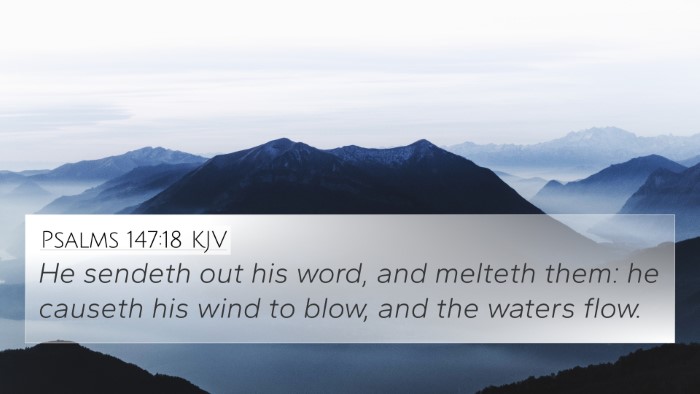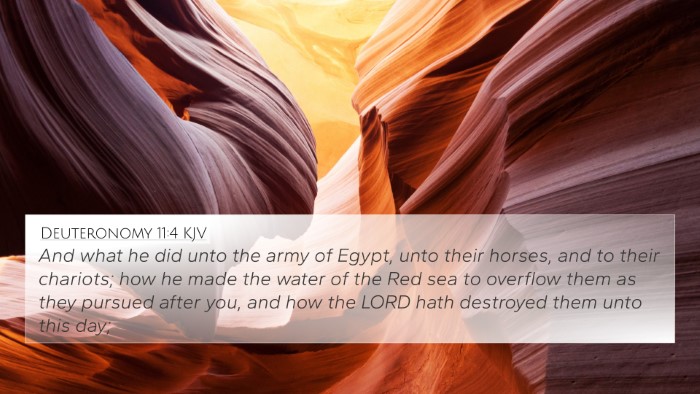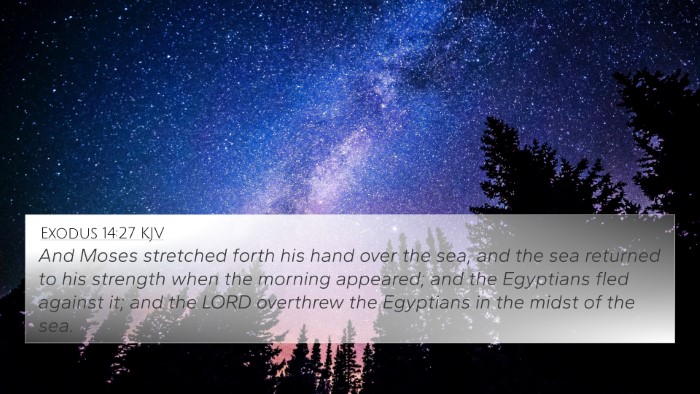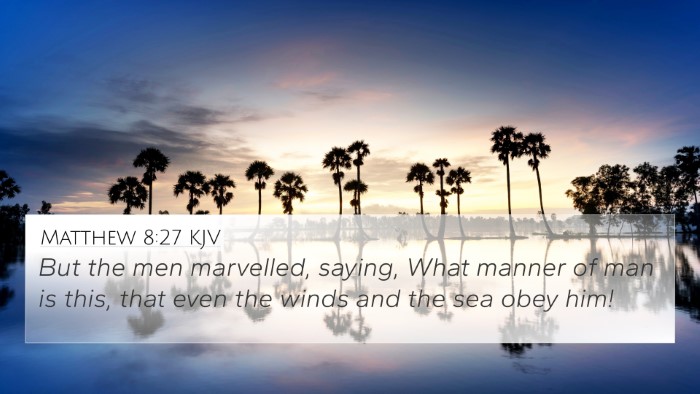Understanding Exodus 15:10
Exodus 15:10 states, "Thou didst blow with thy wind, the sea covered them: they sank as lead in the mighty waters." This verse is a part of the Song of Moses, celebrating the defeat of the Egyptian army at the Red Sea and the deliverance of the Israelites from bondage. Below, we will explore its meaning through the insights of public domain commentaries, drawing connections to other relevant scriptures.
Main Themes and Interpretation
This verse encapsulates the themes of divine intervention and the sovereignty of God over nature. The imagery of God blowing with His wind suggests both power and the natural forces He controls. The Egyptians' drowning symbolizes the ultimate fate of those opposing God’s will.
-
Divine Judgment: The destruction of the Egyptians represents God's judgment against sin and oppression. Matthew Henry emphasizes that this act serves as a clear demonstration of God's wrath against adversaries of His people.
-
Deliverance and Salvation: This event parallels the salvation of Israel, showcasing the idea of liberation from oppression. Albert Barnes notes the importance of understanding God's saving action, highlighting how it reassures the faithful.
-
God’s Power Over Nature: The blowing of God’s wind signifies His control over creation. Adam Clarke comments on the natural phenomena, suggesting that God's will is manifested in physical events, leading to miraculous outcomes.
Cross-Referencing Biblical Texts
Understanding Exodus 15:10 is enriched by exploring its connections with other verses in the Bible. Here are several significant cross-references that illustrate the themes and narratives present in this verse:
- Psalm 77:16-20: Discusses the waters of the sea parting, linking God’s intervention with nature’s response.
- Joshua 2:10: The report of the Israelites’ journey and God's mighty acts prompts fear in the hearts of their enemies.
- Isaiah 43:16: Reminds us of God’s control over the sea and His ability to make a way where there seems to be none.
- Romans 8:31: Affirms that if God is for us, no one can stand against us, reassuring believers of divine protection and intervention.
- Revelation 20:10: Illustrates the ultimate fate of evil, akin to the defeat of the Egyptians.
- 1 Corinthians 10:1-2: Paul reflects on the Red Sea crossing as a spiritual baptism—tying Old Testament events to New Covenant theology.
- Exodus 14:27-28: Provides a direct account of the events leading to the Egyptian army’s destruction and illustrates God’s power in the context.
Comparative Bible Verse Analysis
For those studying the connections between Bible verses, the narrative in Exodus 15:10 can be linked to themes of divine justice and deliverance throughout both the Old and New Testaments. These connections serve to enhance our understanding of God's unchanging nature and His constant commitment to His people.
Recommended Tools for Bible Cross-Referencing
For readers interested in more in-depth studies of thematic connections or cross-references in the Bible, several tools can facilitate this exploration:
- Bible Concordance: A useful tool for finding specific words and their occurrences throughout scripture.
- Bible Cross-Reference Guide: Guides that list related verses helping in the comparative study of themes.
- Bible Reference Resources: Collections of articles, concordances, and maps that contextualize scripture.
- Bible Chain References: Systems that allow readers to follow thematic lines through various books of the Bible.
Using Cross-References for Deep Study
Effective use of cross-references involves examining how different verses illuminate the same themes, characters, or events. Here are some methods to facilitate this:
- Identifying Connections: Look for verses that either precede or follow pivotal events for context.
- Comparative Studies: Engage in studies that focus on specific themes such as deliverance, judgment, or mercy across different scripts.
- Inter-Biblical Dialogue: Explore how Old Testament narratives inform New Testament teachings, creating a deeper understanding of scripture.
Conclusion
In conclusion, Exodus 15:10 serves as a testimony of God’s might and His will to protect and deliver His people. By understanding this verse and its correlations with other scripture through tools such as concordances and thematic guides, believers can gain deeper insight into the biblical narrative and God's ongoing relationship with humanity.
As we explore the connections between Bible verses, we uncover a tapestry of meaning that enhances our faith and understanding of God's character.
